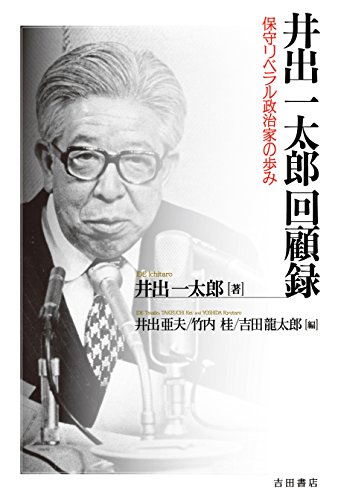15 0 0 0 OA 保守合同後の政党政治と外交政策論争
- 著者
- 吉田 龍太郎
- 出版者
- 日本法政学会
- 雑誌
- 法政論叢 (ISSN:03865266)
- 巻号頁・発行日
- vol.51, no.1, pp.17, 2014 (Released:2017-11-01)
6 0 0 0 OA 芦田均の共産主義認識 ──第二保守党政治家による共産主義批判──
- 著者
- 吉田 龍太郎
- 出版者
- 日本法政学会
- 雑誌
- 法政論叢 (ISSN:03865266)
- 巻号頁・発行日
- vol.53, no.1, pp.21, 2017 (Released:2017-05-19)
The purpose of this research is to re-examine the views of Hitoshi Ashida, one of the prominent figures among Japanese liberalists in opposition parties during the early 1950s, on communist movements. On the issue of domestic policy, Ashida had a critical view on totalitarianism through his career as social-liberal intellectual and politician. Firstly, he declared caution concerning the Japanese Communist Party, which he described as seeking to establish a totalitarian regime in Japan. Secondly, while he tried not to be merely a hard-liner and to introduce his socialized economic policy, he tried to draw a line between communism and his social liberalism. However, he was also very pessimistic about the popularity of liberalism among Japanese people. And his position was becoming marginalized in this era of conflict between so called conservatives and progressives. On the issue of foreign policy, Ashida took a cautious view on the Soviet’s aggression in the Cold war through his active research on Russian diplomacy. Firstly, he accused the Japanese Communist Party of seeking to make Japan a satellite state of the Soviet Union. Secondly, while he tried not to be merely a hard-liner, continuing to think about the possibility of détente and retaining his love to Russian culture, he was cautious about any economic and cultural exchanges between Japan and communist states. However, he remained so pessimistic about the future of Japanese people who he viewed would tolerate communist countries. And his position was gradually opposed, even from the politicians within his own party. He also felt frustration about his social activities, which he saw didn’t attract interest in society and intellectual community, despite perceiving himself as specialist on Russian issues. Through this research, we can see how Ashida was in constant risk of becoming marginalized due to his active but hawkish position.
- 著者
- 吉田 龍太郎
- 出版者
- 拓殖大学海外事情研究所
- 雑誌
- 海外事情 = Journal of world affairs (ISSN:04530950)
- 巻号頁・発行日
- vol.67, no.3, pp.107-119, 2019-05
- 著者
- 吉田 龍太郎
- 出版者
- 日本政治経済史学研究所
- 雑誌
- 政治経済史学 = The journal of historical studies : the politico-economic history (ISSN:02864266)
- 巻号頁・発行日
- no.605, pp.1-21, 2017-05
1 0 0 0 井出一太郎回顧録 : 保守リベラル政治家の歩み
- 著者
- 井出一太郎著 井出亜夫 竹内桂 吉田龍太郎編
- 出版者
- 吉田書店
- 巻号頁・発行日
- 2018

